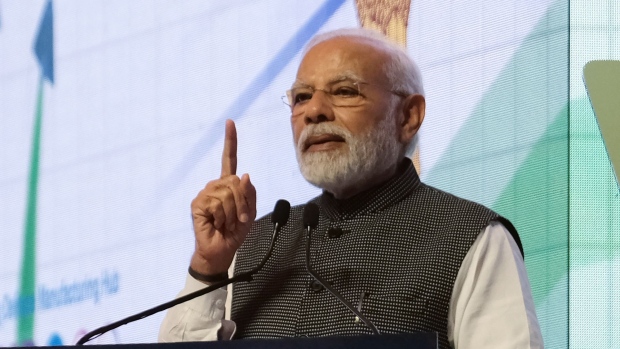Dec 2, 2022
India Seeks to Roll Back States’ Ability to Borrow More
, Bloomberg News

(Bloomberg) -- India may deny any leeway to states wanting more headroom to borrow as Prime Minister Narendra Modi’s administration aims to tighten fiscal policy in a bid to assuage global investors, according to people familiar with the matter.
States’ borrowing, including those to undertake power sector reforms, is likely to be capped at 3.5% of their gross domestic product for the fiscal year starting April 1. That is lower than the 4% cap for the current year, said the people who asked not to be named. Finance ministry spokesman didn’t answer to calls to his mobile phone seeking comment.
Read: India Seeks to Shrink Budget Deficit as Global Headwinds Loom
Some provincial governments are opposed to the cut as it would mean less headroom to borrow especially at a time when revenues could take a hit due to an expected slowdown both home and abroad.
“If recession hits then revenues will drop and states will need to do more spending at the bottom of the pyramid to support people necessitating flexibility in market borrowing,” said Palanivel Thiaga Rajan, finance minister of the opposition-ruled southern state of Tamil Nadu.
New Delhi has already stopped compensating states for the switch to the Goods and Services Tax regime from this year. For states, though, as the economy recovered from the pandemic this year, revenues improved, leaving them to borrow less from the market.
States borrowed 4 trillion rupees ($49.3 billion) between April-November as against 6.55 trillion rupees projected for the first nine months of the current fiscal year.
Market borrowings by states were previously capped at 3% of their GDP pre-pandemic, which was eased to 5% in 2020-21 to help the states with extra resources during the peak of Covid.
Since then, the federal government has been lowering the limit as recommended by the finance commission with an aim to keep the country’s overall fiscal deficit in check.
©2022 Bloomberg L.P.





